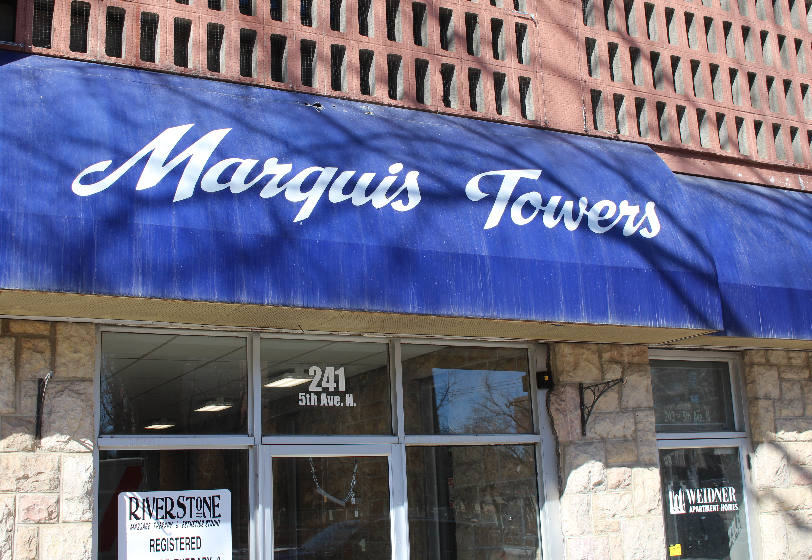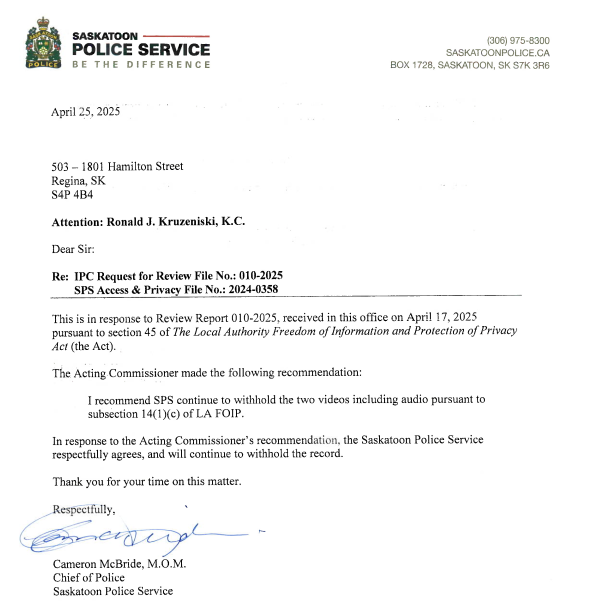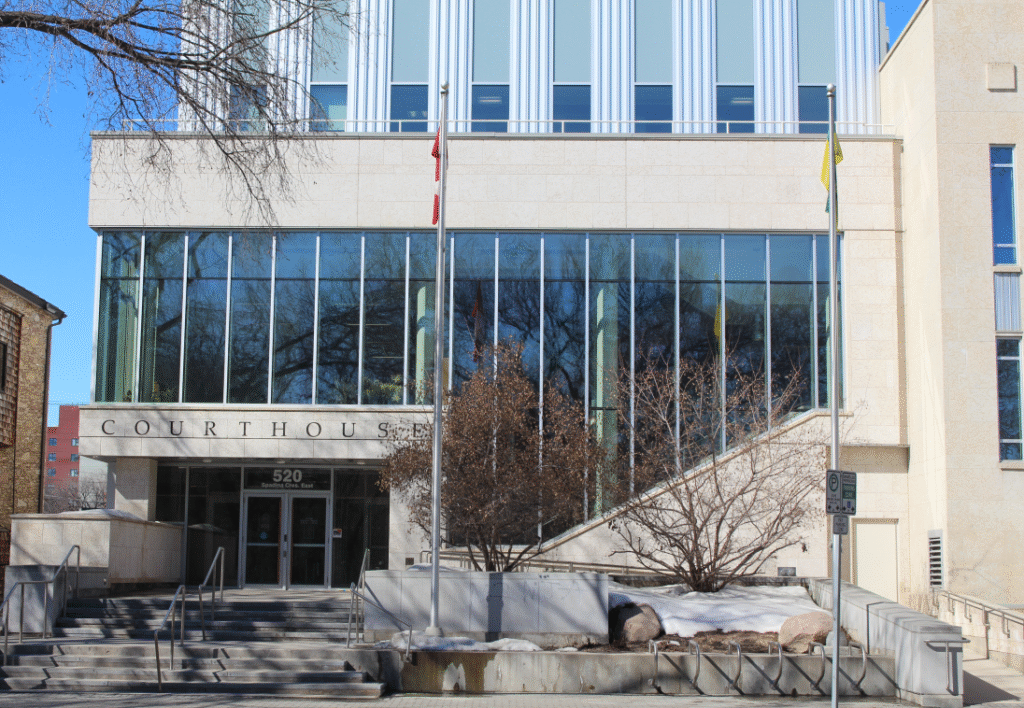“A kingdom divided against itself cannot stand.“
- Mark 3:24
For more on information #991240166: Supreme Court Application for leave to appeal
“A kingdom divided against itself cannot stand.“
- Mark 3:24
For more on information #991240166: Supreme Court Application for leave to appeal
Because justice is a balancing act, the court of law often conducts a test of proportionality in order to ensure that both parties involved are rewarded/punished fairly.
For every transgression, there is an appropriate remedy. For every wrong, there is a corresponding right. And where the court administering the affair prejudices either side, there is a higher court to which an appeal may be brought.
The law can be thought of as a moving target where the customs of the court follow the particular jurisdiction it operates in. What works in one locale may not work in another.
In Saskatchewan, the Crown can only proceed against citizens in good faith and without deceit (Clause 63, Magna Carta):
Application of Criminal Law of England
“The criminal law of England that was in force in a province immediately before April 1, 1955 continues in force in the province except as altered, varied, modified or affected by this Act or any other Act of the Parliament of Canada.”Section 8(2), Criminal Code
However, they have recently violated this understanding …
On August 2nd, 2023, I was a legal resident of Saskatoon. On that day, the Saskatoon Police Service (SPS) attended my apartment claiming they had a warrant for my arrest, and that if I didn’t open the door, they’d “knock it in”:
“We have a warrant for your arrest.”
- SPS Constable Heather Primeau (#727), 241 5th Avenue N in Saskatoon on August 2nd, 2023 9:43 AM
Shortly thereafter, they broke and entered the property, thereby committing a home invasion:
Aggravating circumstance — home invasion
If a person is convicted of 348 in relation to a dwelling-house, the court imposing the sentence on the person shall consider as an aggravating circumstance the fact that the dwelling-house was occupied at the time of the commission of the offence and that the person, in committing the offence,
(a) knew that the dwelling-house was occupied; and
(b) used threats of violence to property.
- Section 348.1, Criminal Code
SPS Constable Kevin Sanderson (#884) broke and entered my apartment on August 2nd, 2023.

Entrance
“For the purposes of sections 348 and 349, a person enters as soon as any part of his body or any part of an instrument that he uses is within any thing that is being entered; and a person shall be deemed to have broken and entered if he obtained entrance by collusion with a person therein”
– Section 350, Criminal Code
However, during trial conducted voir dire on May 6th, 2024, the Saskatoon Police Service testified that they had no warrant in the matter.
That type of threat to my property, combined with them breaking and entering the apartment, is enough to nullify any claim that my actions were not the result of oppressive circumstances.
Without a warrant, the Saskatoon Police Service had no right to conduct themselves the way they did.
I was led to believe that the SPS was executing an arrest warrant, a warrant that, after hearing testimony from SPS Detective Sergeant Tracy Shepherd (#556, Hate Crimes Unit), didn’t exist.

I surrendered myself into their custody under duress and reserve a common law defense in relation to these proceedings for doing so:
Common law principles continued
“Every rule and principle of the common law that renders any circumstance a justification or excuse for an act or a defence to the charge continues in force and applies in respect of proceedings for an offence under this Act or any other Act of Parliament except in so far as they are altered by or are inconsistent with this Act or any other Act of Parliament.”
- Section 8(3), Criminal Code of Canada
On May 6th, 2024, I cross-examined Saskatoon peace officer Heather Primeau about this, who swore an oath to tell the truth, then immediately proceeded to testify falsely against me under that oath. She claimed to have “never” threatened to knock in my door, but I know otherwise …
“Thou shall not testify falsely against thy neighbor”.
- Exodus 20:16
The Saskatoon Police Service (SPS) has proceeded in this matter mala fide (in bad faith).
Therefore, on August 29th, 2024, I made an application before Justice MacMillan-Brown to quash the warrant of committal (order #95300896) in furtherance of my right to a fair trial in the matter. Pursuant section 778(c) of the Criminal Code, a common law writ of certiorari is sufficient to quash the warrant of committal on the grounds that the omission to provide a fair trial in the matter has been the cause of persecution.
The Justice presiding dismissed that application. Instead, their fiat order dated September 2nd, 2024 insults my ability to communicate this grievance …
Because of Saskatchewan’s superior court dismissing this application, the innocent blood of a political party leader has been spilled … and a weapon was used to do it.
That’s the real crime …
The prosecution related to this information was political in nature as none of the allegations were violent. Rather than being about public safety, these proceedings have been adversarial to Canadian nationalism.
There is a war of deception being waged against our nation. The intention is to transition Canada into the “world’s first post-national country”. In order to do so, the Crown is effecting an unwarranted demographic change of our founding population, predominantly through immigration policy to which there exists no democratic mechanism to alter.
As described in section 13 of the Crimes Against Humanity & War Crimes Act, obedience to de facto authority is no justification here …
Conflict with internal law
Despite section 15 of the Criminal Code, it is not a justification with respect to political persecution that the offense was committed in obedience to or in conformity with the law in force at the time and in the place of its commission.
- Section 13, Crimes Against Humanity & War Crimes Act
On July 30th, 2023, I posed this question to an immigrant at the Midtown Plaza in Saskatoon.
Three days later, the Saskatoon Police Service (SPS) was at my door threatening to “knock it in”, and shortly thereafter, broke and entered the apartment without a warrant.
This is a home invasion.
Under such duress, I surrendered myself into custody and spent the next 19 months incarcerated by the Province of Saskatchewan for advocating Canadian nationalism.
As men, protecting the interests of our nation (and our women for that matter) is our birthright, even when they may not understand why we do what we do. An administration that sets itself against this prerogative is acting contrary to our national interests and deserves no public support.
Questioning the motives of immigration is not a crime. For an electoral candidate advocating the political ideology of nationalism, questioning it is expected.
No person is required to agree with my interpretation of Canadian nationalism (they are free to choose who to vote for at the polls), but I am entitled to enforce such policies within reason.
On January 8th, 2025, I applied to the Saskatchewan Court of Appeal for leave to appeal this matter to the Supreme Court of Canada, given that the proceedings used evidence which ought to have been deemed inadmissible because its tendering into the court was a vicarious liability on behalf of the Crown. The peace officer who testified at trial on January 16th, 2024, recklessly waived their right to refuse answering questions tending to prejudice our national interest after they were informed that the court had not been declared according to Canadian law (no mention of His Majesty The King):
Right of refusal to answer or produce document
“Any person examined under any order made under this Part has the like right to refuse to answer questions tending to criminate himself, or other questions, as a party or witness, as the case may be, would have in any cause pending in the court by which, or by a judge whereof, the order is made.”
– Section 50(1), Canada Evidence Act
After the Justice dismissed my motion to strike this evidence from the charge about to be given to the jury, a verdict of guilty was rendered and a sentence imposed. This was done using inadmissible evidence and by withholding other exculpatory evidence (that which speaks to my innocence).
Upon application for the video recording made of me at the Midtown Plaza scene, the SPS has decided to withhold this evidence that paints the interaction in a substantially different light:

The complainant’s party was at suspicion of causing a disturbance, and in response, I acted within reason. I maintain I have committed no offense at the Midtown Plaza in Saskatoon.
Despite this, the provincial Crown claims I am now not allowed to attend Midtown Plaza in Saskatoon because my actions on July 30th, 2023 were a public safety risk. This is yet another example where Canadian nationalists are excluded from public property without due process. The real public safety risk lies with an administration that is attempting to criminalize our nation simply for existing.
Appeals with leave of provincial court
Subject to sections 39 and 42, an appeal to the Supreme Court lies with leave of the highest court of final resort in a province from a final judgment of that court where, in the opinion of that court, the question involved in the appeal is one that ought to be submitted to the Supreme Court for decision.
– Section 37, Supreme Court Act
It is a question of law whether my actions at the Midtown Plaza in Saskatoon on July 30th, 2023 served the public good, and whether there is evidence the actions alleged went beyond what served the public good. For greater certainty, it is a question of law whether the audio recording of the trial held in this matter (January 15th – 18th, 2024) demonstrates that no evidence exists to convict the accused.
In October, 2024, Justice Kaufman of the Federal Court (Winnipeg) refused to hear our application for the audio recording of this trial to be disclosed federally. The disclosure of this audio recording was already granted by Justice Morrall himself on September 4th, 2024 after we made an application for it to the Saskatchewan Court of King’s Bench, although it was not provided to us in time for our appeal hearing on September 6th, 2024.
We have yet to receive a copy of this audio recording.
On January 8th, the Saskatchewan Court of Appeal refused our application for leave to appeal this matter (CACR3770) to the Supreme Court and now we stand deprived of our right to a fair trial in the matter.

As it now stands, there exists no evidence that my actions in Saskatoon that day extended beyond what served the public good.
The prosecution in this matter has prejudiced our national interest by manipulating the evidence at trial.
I have made this appeal to the court of last resort in Saskatchewan because I have witnessed the harm that is being done to Canadian interests as a result of this provincial government abusing its authority.
Justice Morrall committed a crime by counseling Canadian peace officers in furtherance of persecuting the accused and the nationality we advocate for:
Conspiracy, attempt, etc.
“Every person who conspires or attempts to commit, is an accessory after the fact in relation to, or counsels in relation to, an offence referred to in subsection (1) is guilty of an indictable offence.”
– Section 4(1.1), Crimes Against Humanity & War Crimes Act
I’ve been saying it since 2017 and I will say it again here: we need immigration reform. Without any apparent democratic channel to implement such a reform, Saskatchewan is imprisoning political advocates for questioning an immigration system that is fracturing our national identity. As it stands today, our immigration system is being weaponized against us in furtherance of transitioning Canada into the “world’s first post-national country” – a political objective first announced by the Liberal Government in 2015.
Historically, Canada has sourced its immigration from Northern Europe and the British Isles. We support returning to this immigration policy (see: Immigration Act of 1952).
The implication understood from this encounter is that immigrants do not respect what Canada has been traditionally nor our way of life. If they did, they would answer our questions, which are fair and reasonable. However, they refuse, even during cross-examination at trial …
Our application for leave to appeal in forma pauperis to the Supreme Court was apparently faxed to the court registry by the Regina Provincial Correctional Center (RPCC) on October 1st, 2024.
We demand that this appeal be heard by the Supreme Court, as the offense at suspicion of being committed (crimes against humanity) far outweighs in public importance claims of “criminal harassment” relating to my actions at Midtown Plaza in Saskatoon that day.